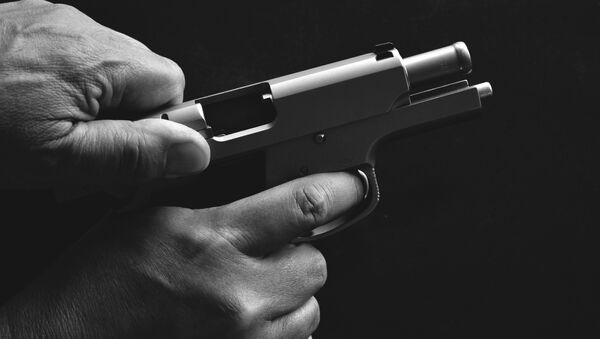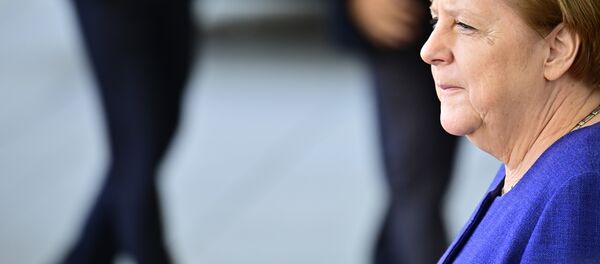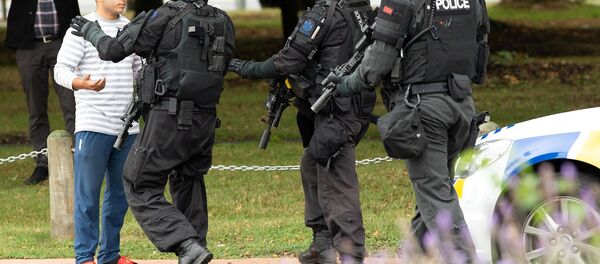9 people were killed and more than 20 injured as a result of the shootings at two mosques in New Zealand's east coast city of Christchurch during Friday prayers. According to the country's prime minister, the terrorist attack was "well-planned."
READ MORE: What You Need to Know About Mosques Shooting in Christchurch, New Zealand
Three men and a woman are in police custody following the attacks, according to the authorities. Footage taken by the shooter has emerged, which he appeared to have live-streamed as he shot victims in a mosque. Police have called on the public not to share the "extremely distressing" material online.
Sputnik discussed the attack with Professor Philip Alpers, founding director of GunPolicy.org, a global project of the Sydney School of Public Health which compares armed violence, firearm injury prevention and gun law across 350 jurisdictions world-wide.
Sputnik: What can you say about this incident in light of New Zealand's current gun laws? I know that in 1990 there was a mass shooting and afterwards there was stricter gun regulation introduced in New Zealand. What can you say about that legislation? Do you think that gun control has really been highlighted due to this latest incident?
Sputnik: What is the primary difference between Australian and New Zealand's gun laws?
Philip Alpers: The primary difference is that in New Zealand 96 per cent of civilian firearms are not registered. In other words nobody is held personally responsible for each firearm. It is still perfectly legal to sell a firearm to another person in, let's say, a carpark of a hotel and keep no record of that transaction; it's quite legal to keep no record of every transaction of a common or garden firearm. And that makes that very easy for firearms to circulate into criminal hands.
Sputnik: Basically, the Australian laws are more stringent than New Zealand's, is that correct?
Philip Alpers: Certainly they are. Australia has the most holistic, the most complete set of gun laws in the world. They are not quite as tight as in some countries. For example, Singapore has the death penalty for firearm possession, the United Kingdom has banned all handguns, that's pistols and revolvers, Australia hasn't gone that far. But when you look at the entirety of all their firearm laws, they have the most complete suite of gun laws of any nation in the world.
READ MORE: Mosque Attacker in New Zealand's Christchurch an Australian Citizen — PM
Sputnik: Am I correct in understanding that you feel that the fact the laws are less stringent in New Zealand made New Zealand the choice as a soft target for the perpetrators?
Philip Alpers: We can only speculate on that. I mean I've never met those men, I have certainly not questioned them and we'll have to wait for the trial and the evidence to come out for that one. But the prime minister of Australia has already attributed that possibility to this young man. So, it's certainly a factor that everybody is going to look at very closely in the next few days.
Sputnik: What can we expect going forward? Jacinda Ardern has come out and said that this is a terrorist act and a very dark day for New Zealand; I think that she's fully understood how this is going to change New Zealand really forever because it's absolutely unprecedented in the number of deaths and really in many ways. Do you think that we are going to see an extensive, redoing, rewriting of the gun laws as well as, perhaps, some other measures that are aimed at halting extremist ideology?
Philip Alpers: It's impossible to forecast the future, but I would be very surprised if New Zealand and its current government after this terrible shock doesn't make some very swift moves. It's been referred, here in Australia, as Jacinda Ardern's Port Arthur moment. And that means that after Port Arthur the prime minister of Australia suddenly decided that this type of firearm would be banned and that a whole raft of new laws would be brought in. He took only 12 days to make those legal changes, and since then the risk of dying by gunshot in Australia has dropped by more than half and stayed there for the last 23 years.
The views and opinions expressed by the speaker do not necessarily reflect those of Sputnik.





